Shaman
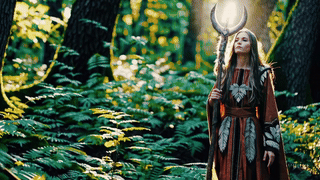
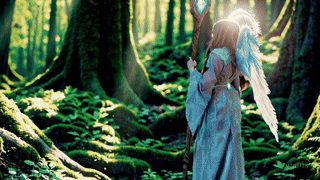
Introduction to Shamanism
A shaman is a spiritual practitioner who bridges the physical and spiritual worlds, serving as a healer, guide, and mediator between human beings and the unseen realms. Shamanism is one of the oldest spiritual practices in human history, with evidence dating back tens of thousands of years. Found in cultures across the globe—from Siberia to the Amazon, Africa, and the Arctic—shamanism is not tied to any single religion or doctrine. Instead, it is a universal practice rooted in a profound connection with nature, spirits, and the cycles of life.
The word "shaman" originates from the Tungusic-speaking people of Siberia, where it translates to "one who knows" or "one who sees in the dark." This title reflects the shaman’s ability to access hidden realms of consciousness, retrieve knowledge, and bring healing to individuals and communities.
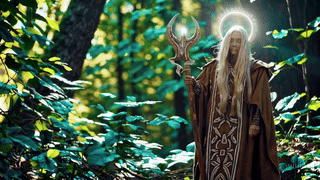
Key Characteristics of a Shaman
- Spiritual Mediator: Shamans are intermediaries between the physical and spiritual worlds. They enter altered states of consciousness, often through drumming, chanting, dancing, fasting, or the use of sacred plants, to journey into non-ordinary reality. In these realms, they communicate with spirits, ancestors, and forces of nature.
- Healer: Healing is a core role of the shaman. They address physical, emotional, and spiritual ailments by restoring balance and harmony. This may involve energy work, soul retrieval, removal of spiritual blockages, or guidance for the afflicted.
- Wisdom Keeper: Shamans are guardians of ancient knowledge, wisdom, and traditions. They hold insights into the interconnectedness of all life and often serve as teachers, passing on sacred practices, myths, and ceremonies.
- Connection to Nature: Shamans see nature as a sacred and living entity. They work with the energies of animals, plants, elements, and the Earth itself, often interpreting signs from the natural world as messages from spirit.
- Visionary: Through dreams, visions, and intuitive insight, shamans foresee events, diagnose problems, and provide guidance. Their heightened perception allows them to navigate spiritual dimensions and uncover truths hidden from ordinary sight.

Unique Strengths and Potential of Shamans
- Empowerment of Individuals and Communities: Shamans help individuals reconnect with their inner strength, purpose, and spiritual path. By addressing collective challenges, they also foster unity and resilience within communities.
- Holistic Healing: Unlike conventional approaches that focus on symptoms, shamans address the root causes of dis-ease by considering the spiritual, emotional, and physical dimensions of well-being.
- Resilience and Adaptability: Shamans often emerge during times of crisis or transformation, offering stability and guidance. They have an innate ability to adapt to different cultures and challenges while maintaining their core spiritual principles.
- Universal Reach: The practice of shamanism transcends cultural and geographical boundaries. While it may take different forms in different societies, the shaman’s role as a healer and spiritual mediator remains consistent.
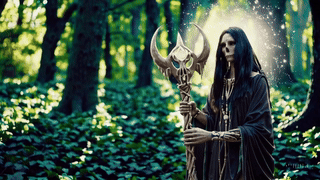
Extreme and Fascinating Facts About Shamans
- Altered States of Consciousness: Shamans can enter trance states that enable them to travel to other dimensions. Scientific studies have shown that during these states, the brain may enter gamma wave activity, associated with heightened awareness and insight.
- Soul Retrieval: A common shamanic practice is "soul retrieval," where the shaman journeys to recover fragments of a person’s soul that may have been lost due to trauma, grief, or illness.
- Animal Spirit Allies: Shamans often work with "power animals" or spirit allies that provide protection, wisdom, and strength. These animals are seen as reflections of the shaman’s spiritual essence.
- Sacred Plant Medicine: In some cultures, shamans use sacred plants like ayahuasca, peyote, or iboga to facilitate healing and gain spiritual insight. These plants are considered "teachers" that reveal hidden truths and connect practitioners with higher consciousness.
- Timeless Role: Despite the rise of modern science and technology, shamanic practices are experiencing a resurgence in the contemporary world. People seek shamans for guidance in navigating spiritual crises, reconnecting with nature, and finding meaning in life.
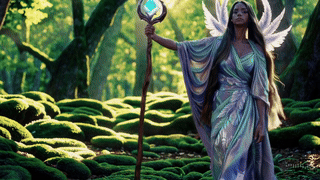
Conclusion
Shamans hold a unique and powerful role as custodians of spiritual wisdom and agents of healing. Their practices, deeply rooted in ancient traditions, continue to offer insights and transformation in the modern era. By bridging the worlds of spirit and matter, shamans remind us of our innate connection to the universe and the profound wisdom available when we align with the natural and spiritual worlds.



Sign up for free masterclass


![Guild of the Dragons -Knowledge Node [^]~~~~~Gratitude~~~~~[^] G0TD](https://guild-of-the-dragons.ghost.io/content/images/2024/02/depositphotos_1562554-stock-photo-golden-dragon.jpg)

